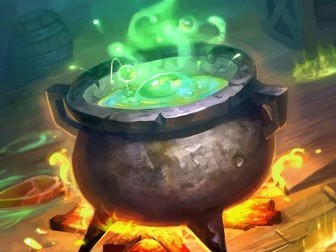An Introduction to Theatre through Literature
<p>This scheme is suitable for early KS3 and was designed with an English Literature focus though it could be used for Drama or Theatre Studies if desired.</p>
<p>Develops: Knowledge</p>
<p>This scheme of work introduces conventions of theatre.<br />
Throughout the scheme, students explore the origins of theatre, Shakespearean texts, modern scripts and the history and conventions of theatre.</p>
<p>The scheme focuses on the evolution of theatre at its core and explores that theme through a variety of methods including: history of theatre and Shakespeare; analysis of Greek, Shakespearean and modern texts; creative writing; and performance.</p>
<p>The Scheme is focused into two parts (originally intented to spread across two half terms). The first half has more of a literature focus whereas the second half has more of a dramatic/Speaking and Listening focus.</p>
<p>Part 1<br />
Lessons 1, 2 and 3 focus on the origin of Greek theatre, the introduction of stock characters, including protagonists and antagonists and some analysis of an extract from the Greek play Alcestis.<br />
- Teaches history of theatre<br />
- Introduces key vocabulary<br />
- Introduces stock characters and their traits<br />
- Teaches analysis of script<br />
Lessons 4 and 5 introduce Shakespeare and explore Lady Macbeth’s sleepwalking.<br />
- Introduces history of Shakespeare<br />
- Develops evolution of character<br />
- Analysis of Shakespearean text with a focus on characterisation<br />
Lesson 6 explores modern theatre and how characters have evolved in literature.<br />
- makes links to the evolution of literature and characters within.<br />
Lesson 7, 8, 9 and 10 build toward a written assessment in which students compare ‘Unto the Breach’ (Henry V) to an extract from The Hunger Games. This assessment has a literature focus and uses the ‘What/How/Why’ paragraph structure, though this could be easily adapted to PEE or similar.<br />
- Develops use of literature essay. Could be used to introduce comparison of Shakespearean and modern texts OR the two texts could be explored individually.<br />
Lessons 11 and 12 explore the Witches Spell from Macbeth and encourage students to explore Mise-en-Scene, stagecraft and creative poetry.<br />
- Students continue to explore Shakespearean language and text<br />
- Students write their own texts using Shakespeare’s poetic style.</p>
<p>Part 2<br />
Lessons 1 and 2 explore TV and radio scripts and looks at the difference between them.<br />
- Students develop an understanding of script conventions and how modern TV and radio is made.<br />
Lessons 3 and 4 encourage line learning and performance through use of modern script.<br />
- Students learn how to memorise script and build confidence in performing.<br />
Lessons 5 and 6 allow students to write their own monologues as well as learn them.<br />
- Students hone their creative writing and utilise the knowledge they have gleaned from the course.<br />
Lessons 7 and 8 ask students to rehearse and perform their monologues.<br />
- Students build confidence in performing and learn how to critique positively and support each other through performance.</p>
